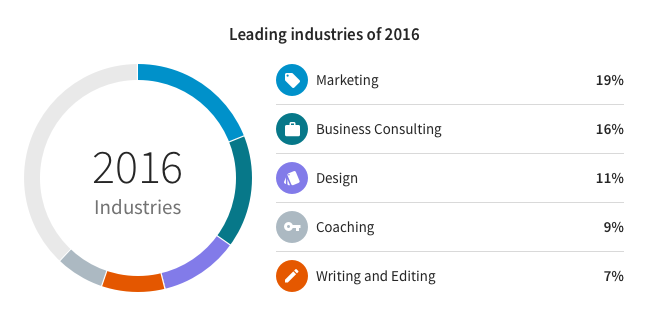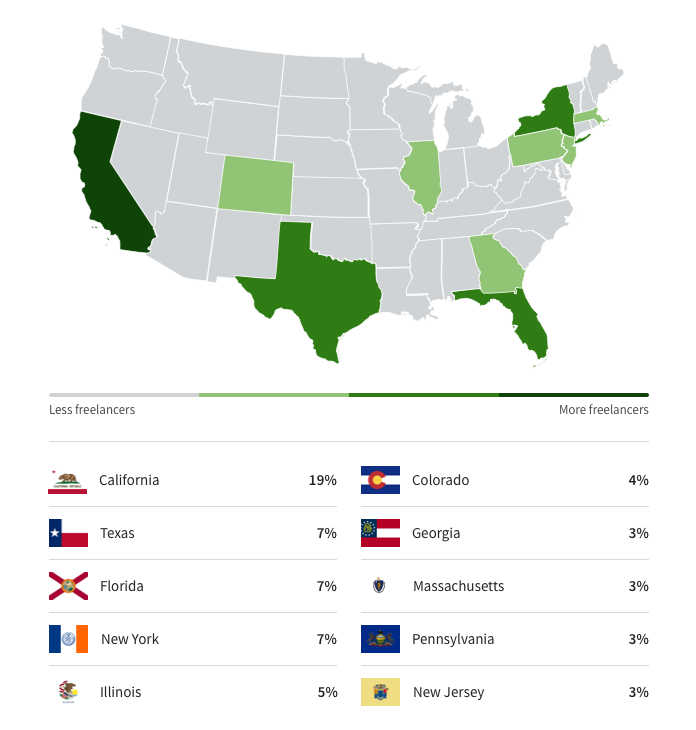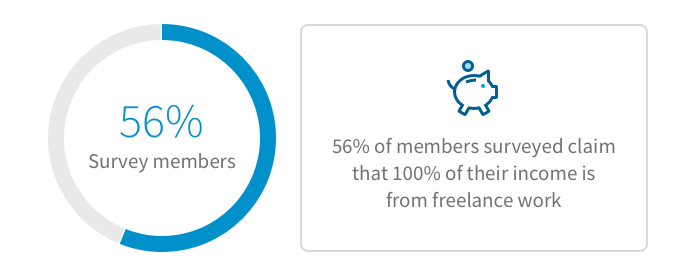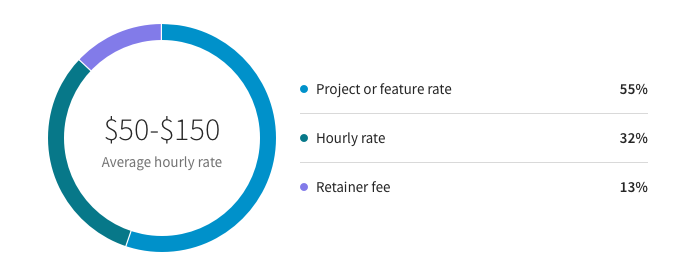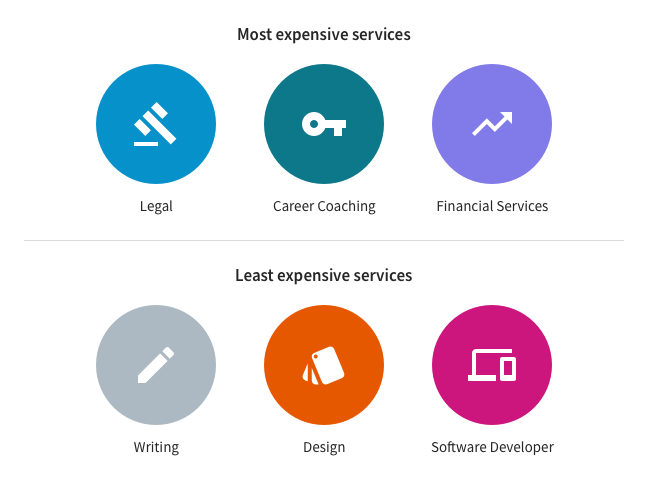Freelancers now account for nearly
35% of the U.S. workforce and the trend is only picking up speed with more professionals opting to create their own jobs in lieu of more traditional full-time employment.
As we head into the new year, we want to shed a bit more light on this burgeoning sector of the workforce. What kind of location, industry and demographic trends are surfacing among the freelance professionals of 2016? You might not know, for example, that a whopping 40% of our freelancers are concentrated in just four states:
California,
Texas,
Florida and
New York. Or that more senior men are most likely to take the leap into freelancing.
The time is ripe to be a freelancer in America so we’re revealing insider insights like these to help you learn more about this trending profession. Check out the report below - gleaned from a survey of more than 9,500 of our
ProFinder professionals - to see what we discovered.
Methodology
The results of this analysis represent the world seen through the lens of data collected via a LinkedIn ProFinder survey. As such, it is influenced by how members chose to respond to survey questions, which can vary based on professional, social, and regional culture, as well as overall survey availability and accessibility. These variances were not accounted for in the analysis. The survey was distributed to ~53,000 active ProFinder professionals. This final analysis is comprised of data submitted from 9,589 of these LinkedIn ProFinder members.
Industry Favorites
Marketing, Business Consulting and Design topped the charts as the leading industries for freelance work in 2016. In fact, these three categories accounted for nearly 50% of our ProFinder survey respondents.
Who’s Doing What?
Younger freelancers lean on skills and technology, while older freelancers leverage experience and established personal networks. According to our data, skills-based fields like writing, photography and home improvement are the most popular amongst younger freelancers. On the other hand, more senior freelance professionals tend to take on roles as coaches, business consultants, real estate professionals and marketers.
Bright Lights, Big Cities!
According to our data, 40% of freelance professionals are concentrated in four states with major urban populations: California, Texas, Florida and New York.
Profile Patterns
The average freelancer is currently an older male. According to our data, the more senior a professional is in their career, the more likely they are to take on freelance work or transition into freelancing as an alternative to retirement. On top of that, nearly two-thirds of all
professional freelancers surveyed were male.
Money, Money, Money
According to our data, just over half of all freelance professionals report earning 100% of their annual income from their freelance work. That leaves a massive number of freelancers who are taking projects on the side of their day jobs, hoping to grow their self-employed income distribution next year.
Paid Per Project
According to our data when it comes to hourly rates, there’s a broad spectrum of how much freelancers are charging for their time. Average hourly rates tend to be in the $50-$150/hr. range, with older freelancers typically charging more than their younger counterparts. When it comes to billing, more than two-thirds of freelancers charge either by the project, feature or on a retainer basis, which reduces the need to track hours for projects.
Top Earners
Certified pros are in high demand. According to our data, freelancers who practice law, offer certified coaching or financial services tend to charge significantly more than other types of freelancers. The freelance fields of work that command the lowest rates, such as writing, design and software development have lower barriers to entry and measurably more competition.
